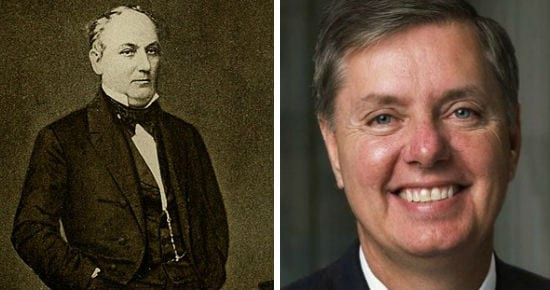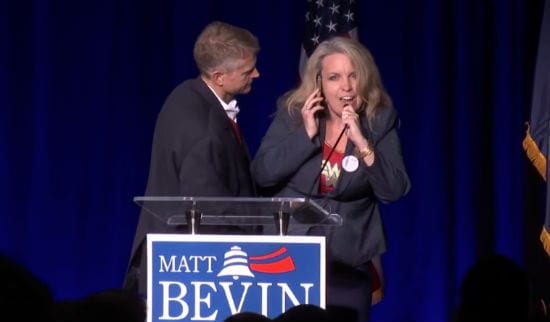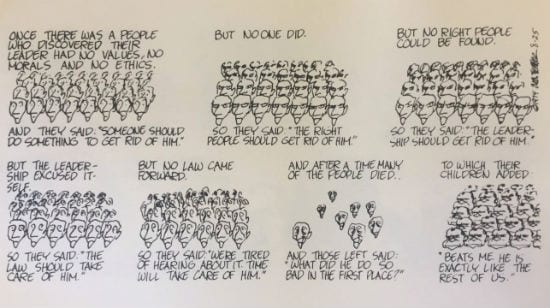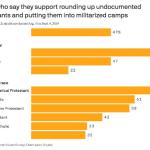The Guardian's Simon Jeffery today offers a helpful Q&A backgrounder on the humanitarian crisis in Darfur, Sudan.
I have not previously written here about Darfur, where more than a million people have been displaced and 30,000 have already died from hunger or at the hands of violent militias.
The United States Congress has declared, without a single dissenting vote, that the situation in Darfur is a case of "genocide." It is not clear that in doing so, however, they fully appreciated what such a declaration entails. They seem to have recognized that this declaration would make American intervention an option, but not that it would make such intervention an obligation.
Congress seems to regard this vote as simply a strongly worded statement of rebuke. Despite the unanimous votes on this declaration (422-0 in the House; unopposed voice vote in the Senate) there seems to be little sense that Congress expects or desires its declaration to result in action to stop what is occurring in Darfur.
This is partly why I haven't written, or known what to write, about this crisis. "This is horrible and someone ought to do something," is not a helpful contribution to the conversation.
One obvious problem for the United States post-Iraq is that the "world's only superpower" nonetheless may be powerless to respond. America's military is rather busy at the moment. The Army is still desperate for more troops in Iraq where, retired Gen. Tommy Franks tells us, the majority of our military will be occupied with an occupation for at least five years. The effects of this massive commitment in Iraq can already be seen in Afghanistan, where heroin-enriched warlordism and anarchy reign. In Afghanistan, a country the size of Texas, the size of America's force is slightly smaller than that of the police force that will be guarding the Republican National Convention at Madison Square Garden.
Congress is aware of this. They know that even as they condemn "genocide" in Darfur, the United States has few military options available for intervention. Khartoum and the Janjaweed militias also seem to know this. As does Pyongyang.
For Kim Jong Il and the Afghan warlords and the Janjaweed, the world has indeed become a safer place since the U.S.-led invasion of Iraq.
It may be, however, that the lack of viable American military options for intervention in Darfur represents an opportunity to undo some of the damage of the past two years. It may remind our leaders that cooperation and multilateral action are a necessary source of strength, not a sign of weakness. It may also serve as a reminder that there exist more than just the binary options of total invasion versus "doing nothing."
The ascendance of that binary view is probably the main reason I have been reluctant to say more about the crisis in Darfur. When humanitarian concern has been conscripted into service to support arbitrary war, the genuine expression of humanitarian concern becomes more difficult.
As the primary pretexts for the invasion of Iraq evaporated — the supposed stockpiles of WMDs, the purported links to al-Qaida, the perjuries of Colin Powell's ignoble speech — humanitarian concern has become the last bastion of defense of the war.
Listen to Undersecretary of Defense Paul Wolfowitz or to the editors of The New Republic — this humanitarian claim has become their final defense for the insistence that the Iraq war was necessary and wise. Before the invasion, of course, both Wolfowitz and the New Republic editors had explicitly stated that this claim alone did not constitute sufficient justification.
These bellicose humanitarians-come-lately have made it more difficult to express concern about tyranny, oppression or genocide elsewhere without seeming to embrace their binary perspective of "do nothing" versus invasion/occupation/privatization/(abandonment). This perspective demonstrates a failure of imagination, an ignorance of history, and a lack of vision — they cannot perceive the difference between a spectrum and a strobe light.
I do not know what Congress intends in the wake of its condemnation of "genocide" in Darfur. I hope that they regain their vision and see that they have more than only two options.
















